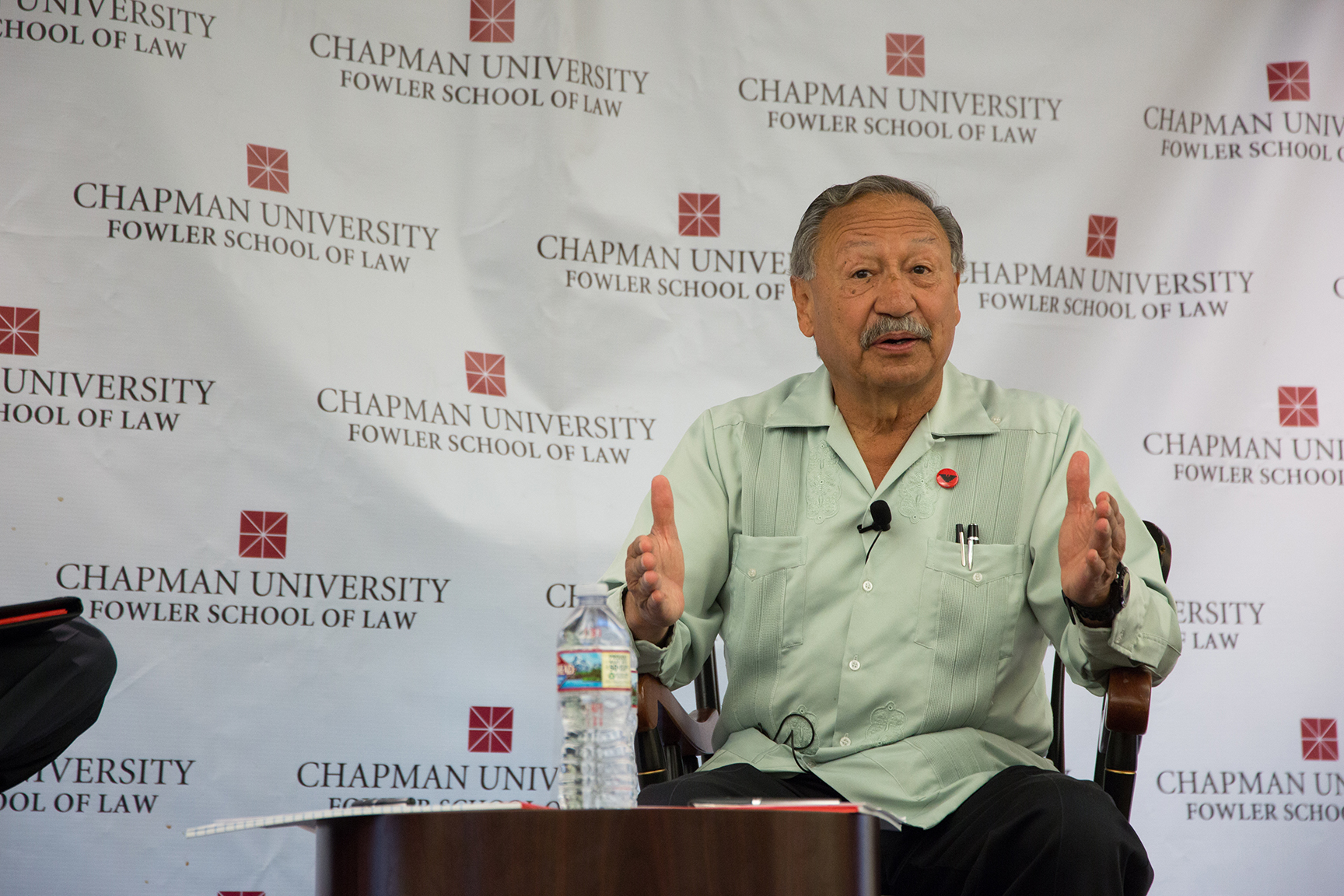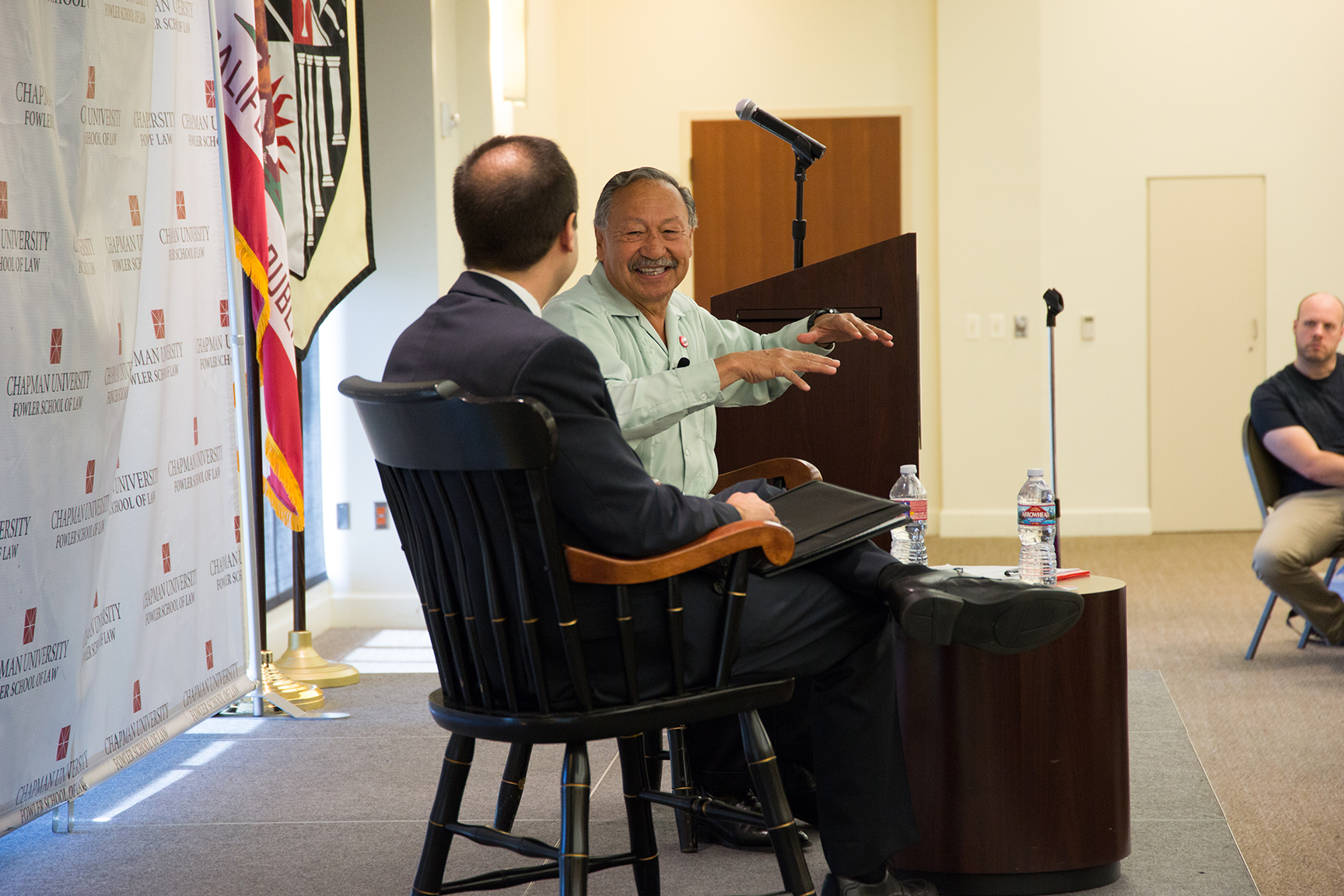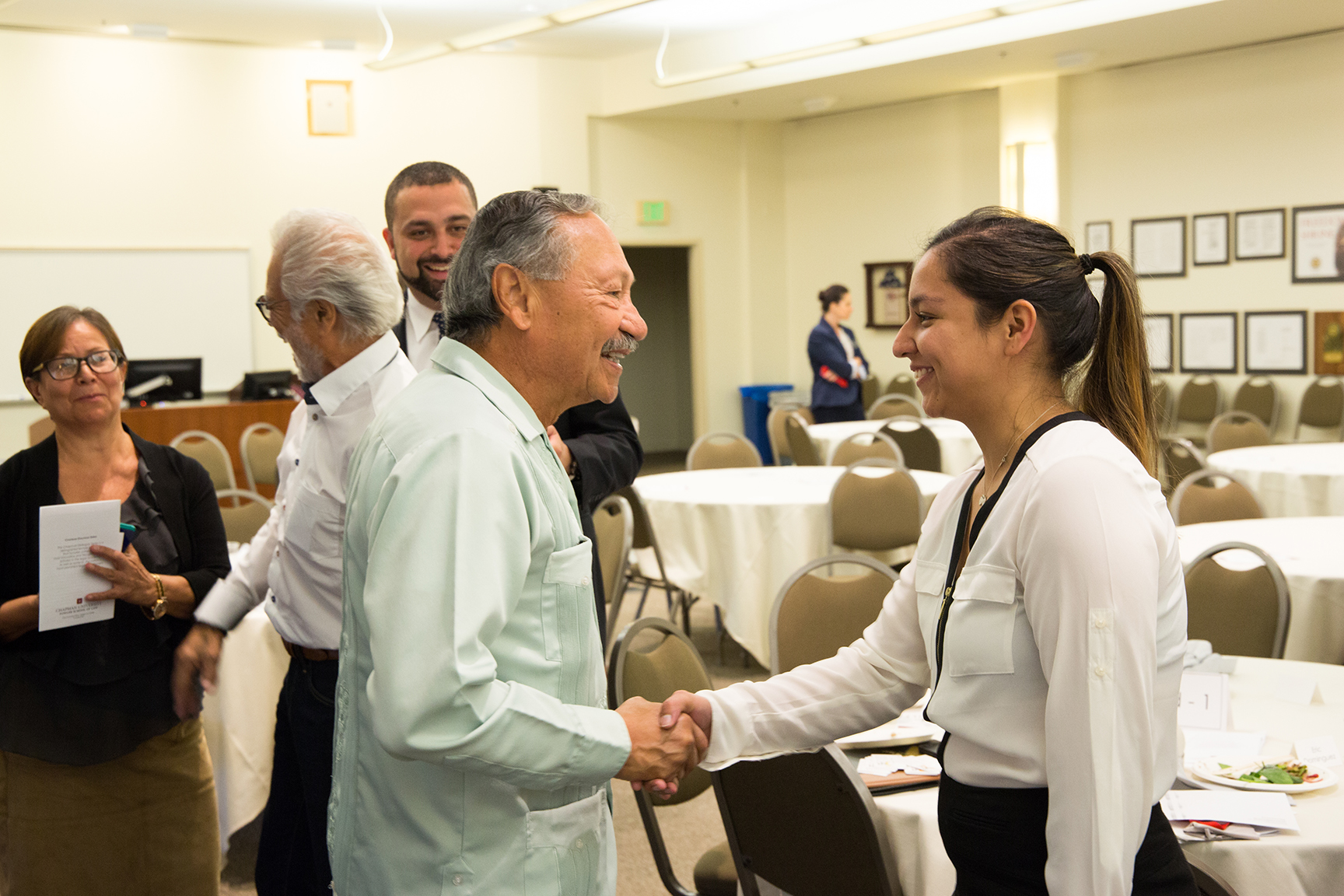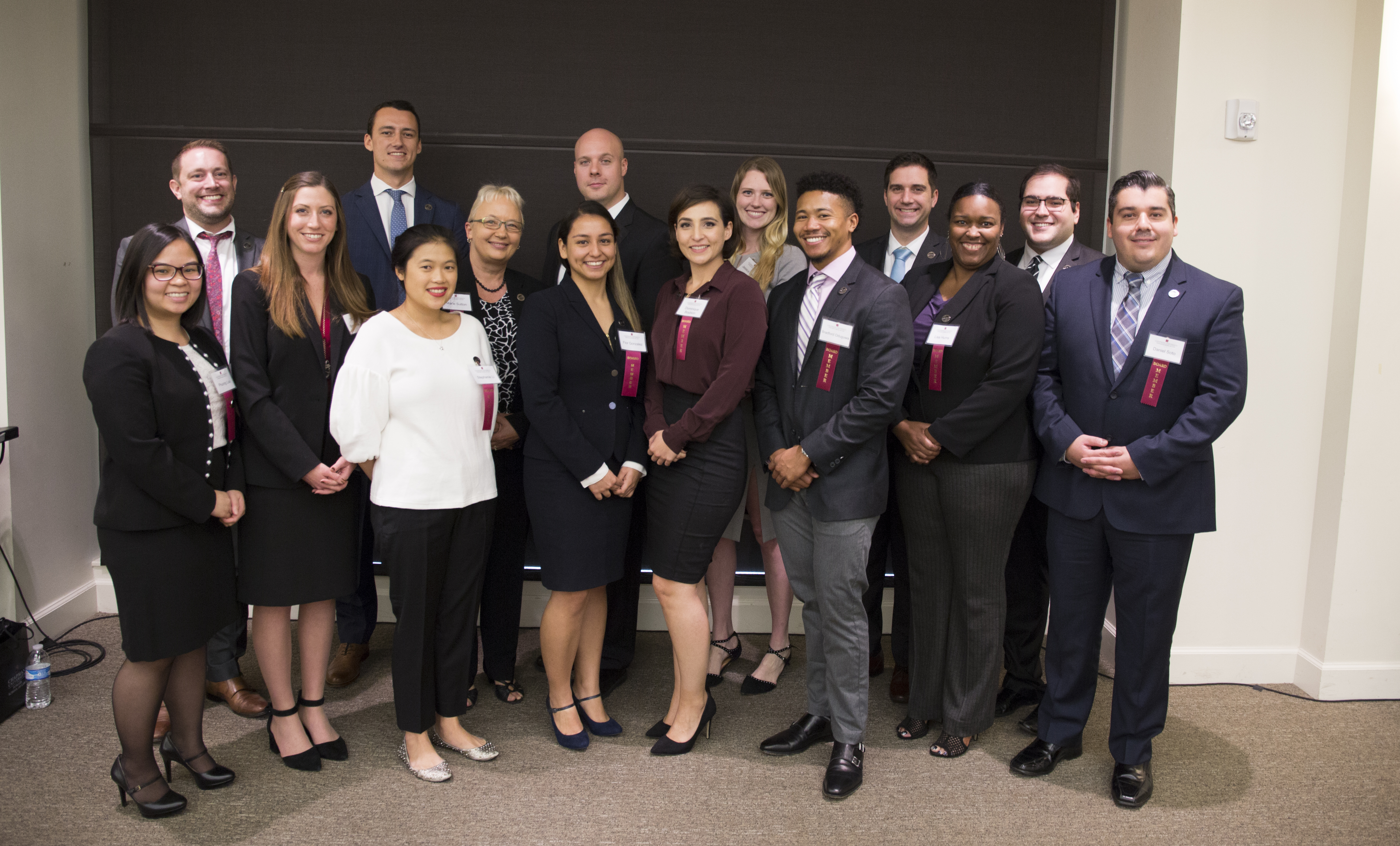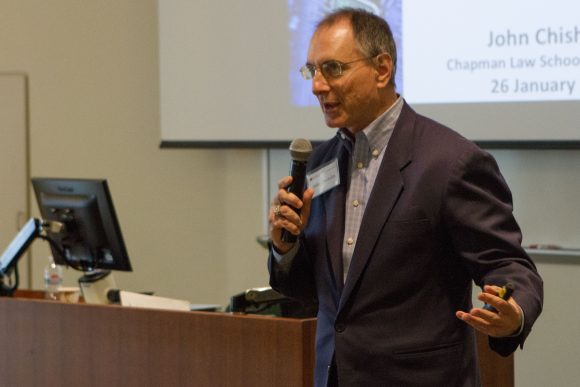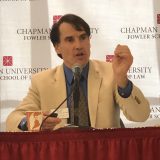![]()
Diversity & Social Justice Forum
Chapman University Dale E. Fowler School of Law’s student-run Diversity and Social Justice Forum hosted its third-annual symposium titled “Changing Institutions, Disappearing Protections” on Friday, November 3, 2017. The event focused on civil rights, immigration, and health care reform and featured a keynote presentation by Co-founder and Executive Director of Life After Hate, Inc. Sammy Rangel.
Symposium Presenters
Opening Remarks
Matthew Parlow, Dean and Donald P. Kennedy Chair in Law, Chapman University Dale E. Fowler School of Law
Panel 1
Amira Hasenbush, Jim Kepner Law and Policy Fellow, the Williams Institute, UCLA School of Law
Kimberly LaSalle, Principal, Law Offices of Kimberly LaSalle; President, Thurgood Marshall Bar Association (Moderator)
Patricia Leary, Distinguished Teaching Professor of Law, Whittier Law School
Susan Shelley, Editorial Writer and Columnist, Orange County Register
Keynote
Sammy Rangel, Co-founder and Executive Director, Life After Hate, Inc.; Founder, Formers Anonymous; Author
Panel 2
Andres Bustamante, Principal, Law Offices of Andres Bustamante; Immigration Rights Advocate
Karina Gutierrez, Staff Attorney, Public Law Center Immigration Law Section
Julie Marzouk, Assistant Professor, Clinical Faculty, Co-Director, Bette and Wylie Aitken Family Protection Clinic, Chapman University Dale E. Fowler School of Law (Moderator)
Edna Monroy, Author, Immigrant Advocate
Panel 3
Lucas Botello, Campaign Manager, Sam Jammal for Congress (California’s 39th Congressional District)
Kurt Eggert, Professor of Law, Director, Alona Cortese Elder Law Center, Chapman University Dale E. Fowler School of Law (Moderator)
Mirielle Jacobson, Associate Professor of Economics and Public Policy, Director, Center for Health Care Management and Policy, UCI Paul Merage School of Business
Alan Sedley, Partner, Sedley Health Law Group
Manohar Sukumar, Lead Staff Attorney, Public Law Center
The symposium opened with the panel “Who Watches the Watchmen?: Civil Rights and Accountability Under the New Administration,” which looked at the Department of Justice’s shift to socially conservative positions on major cases involving civil rights. The second panel, “’Crimmigration’: A Critical Look at Rationales for Increasing Deportation,” explored the intersection between border security, the human rights of those crossing the border, and related policies. The day ended with “American Health Care in the Face of Current Reform Efforts: How Much Should the Public Expect from Government Programs and Why?,” which analyzed how history has influenced the Affordable Care Act and provided predictions about the future of the healthcare industry.
“There is nothing more important than having symposia where we talk about issues and try to educate people, provide information, and have civil discussions,” Fowler School of Law Dean Matt Parlow said.
In his keynote luncheon address, Rangel spoke about his path to becoming involved in Life After Hate, as well as his approach to working as a counselor with troubled populations. Life After Hate, founded in 2011 by former members of the far-right extremist movement, works with individuals who wish to leave a life of hate and violence. Rangel encouraged the audience to avoid quick judgments of people or groups and to practice compassion to help heal communities torn apart by hatred.
In discussing his own life path, Rangel described how he ran away from home to escape abusive parents at age 11 and began a criminal lifestyle that lasted for more than a decade, culminating in years of incarceration. Rangel eventually turned his life around, earning a Master of Social Work degree, cum laude, from Loyola University Chicago.
In recounting his life in prison, he told of being labeled as “incorrigible” by prison counselors and asked the audience to consider how the country’s judicial system can be changed to avoid reinforcing criminal behavior. His also shared insights into his work on a five-year project with the Department of Justice, where he developed a new approach to working with inmates and former inmates that significantly reduced rates of recidivism.
“Until we start talking about what it takes to pull people out of these systems that are broken; until we can reconnect with their humanity and help them reconnect with their own levels of humanity; we’re not going to be effective in any strategy that we try,” Rangel said. “No one is irredeemable, and no one is incorrigible, and no one is broken beyond repair.”
In addition to the annual symposium, the Diversity and Social Justice Forum publishes an online publication that addresses practice-oriented issues of social justice.
Learn more about the Diversity and Social Justice Forum.
Watch the symposium panels:
Panel 1
Keynote & Panel 2
Panel 3











